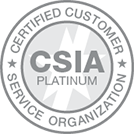Now, more than ever, we have been hearing about a myriad of dietary restrictions and allergies swooping the nation. From gluten intolerance to sugar-free and everything in between, having a dietary limitation is an extremely common occurrence. Whether it be for health, medical or religious reasons, more and more people are claiming specific menu alterations when eating out or attending events.

In the world of meetings, we are constantly faced with trying to please the client, and our budgets! Sometimes accommodating all dietary restrictions can seem like a challenge, but the more you understand about the limitations and meaning behind some diets, the easier it can seem to find something to please even the most intricate of cases.
First, let’s begin with the most common types of dietary restrictions:
Vegetarian
A vegetarian is an individual who does not consume any animal flesh. This includes fish, poultry, pork and red meat. Vegetarians also may not consume some animal-by product items such as gelatin (which is generally derived from ground animal bone). Vegetarians do, however, consume dairy products including milk, butter and cheese. Most vegetarians consume eggs (the term “lacto-ovo vegetarian was developed for vegetarians who consume eggs and milk products/dairy, but not meat), but you should err on the side of safety and not include eggs in your vegetarian dishes.
Vegan
A vegan is an individual who does not eat ANY animal by-product, and usually does not use animal products in their everyday life (i.e. wear leather, suede, use lotions or soaps with honey or milk in them, etc.) Vegans do not consume ANY dairy, eggs, yogurts, milk products, cheeses, butter, whey product, or sometimes even honey. Vegans are a bit more difficult to accommodate because many desserts, crackers, and pastries contain milk product.
Kosher
The order in which the food is sold, cooked, or eaten satisfies the requirements of Jewish law. Kosher also means to not mix certain foods together, such as meat and dairy products. Also, certain types of meats are forbidden. The only types of meat that may be eaten are cattle and game that have “cloven hooves” and “chew the cud.” If an animal species fulfills only one of these conditions (for example the pig, which has split hooves but does not chew the cud, or the camel, which chews the cud, but does not have split hooves), then its meat may not be eaten.
We know a lot of meetings serve camel, so please keep this in mind. Examples of kosher animals in this category are bulls, cows, sheep, lambs, goats, chicken, turkey and veal.
Gluten-Free
Someone who is gluten-free, either for medical reasons (Celiac disease) or for health benefits (the “gluten-free” fad has become rather popular in the past few years), is an individual who does not consume any gluten.
Gluten is the protein found in wheat (which includes wheatberries, durum, emmer, semolina, spelt, farina, farro, graham, Khorasan, wheat and einkorn), rye, barley and “triticale” – a cross between wheat and rye.
Gluten is like the “glue” which helps foods maintain their shape. Gluten can be found in many types of foods, and may be in more things than you expect! Of course, gluten is in breads, crackers, cereals, pretzels, and the majority of all baked goods.
In addition to the four common restrictions, you may also find attendees with dairy intolerance only (lactose-intolerance), or perhaps are mixes of some dietary restrictions, such as pescetarians, who do not eat red meat or poultry, but do consume fish, eggs, and dairy.
Now, how do you accommodate registrants with dietary restrictions? Well, any catering company now-a-days should be prepared for these, but some common things to know are:
- Vegan dishes can generally be used for ‘kosher’ individuals, unless they follow proper “Halacha” (Jewish Religious Law) in which they must have the food prepared in a completely kosher kitchen by a rabbi. In this case, the food must be specially ordered, and not placed near or served with utensils that have touched ANY non-kosher foods. This is a very delicate process and should be handled with care as to not upset the registrant. A good rule of thumb is, that if you see a registrant chooses Kosher, to reach out to them beforehand and ask the specifics of their request, and if a vegan or vegetarian meal is sufficient, or if it needed to be a true traditional Kosher prepared meal in a Kosher kitchen by a rabbi. This can save some run-around (and money, these dishes can be rather pricey!) if all they want is “no red meat or pork”.

- Rice is a great substitute for the carbohydrate in gluten-free meals. If you are serving pasta, you can ask the kitchen to prepare rice as the gluten-free substitution. Just verify there is no other grain mixed in with the rice that would jeopardize it being truly ‘gluten free’.
- Most catering companies now have gluten-free pastas, wraps and breads available, just be sure this is properly marked for attendees.
- Having a fruit or dairy-free sorbet station is always a good idea for desserts that can satisfy any dietary restriction. As you may imagine, desserts are the trickiest to accommodate because they all generally contain some sort of flour, dairy product and animal product (butter, milk, etc.)
- If there is an issue with the venue providing both vegan and vegetarian meals, be safe and always go with the VEGAN option. Vegan options can satisfy all vegans, all vegetarians, and most non-orthodox kosher individuals.
- LABEL, LABEL, LABEL! Some things may not spark you as being a dietary nightmare, but when it comes to true dietary restrictions you can never be too safe. For example, if there is a vegetable soup option, generally one would think this would suit a vegetarian, however, the broth is likely made with chicken or beef stock. Always ask, always check, and ALWAYS label when you can.
Also, don’t forget to ALWAYS label the dishes prepared for your special diet guests by their names. If you have the time to do so, reaching out and getting their specifications and full name, then noting where they will be sitting perhaps during room checks or registration check in is VERY helpful when ensuring they are given the proper meal, and treatment.
Guaranteed that at registration if you make a note to ask where they will be close to lunch or dinner time so you can alert the catering company to deliver their specific meal to their seat, it will go a LONG way and make them feel special and taken care of.
Dietary restrictions are usually incredibly important to those who have them, so going that little extra step to ensure they are able to enjoy your event with everyone else, and feel comfortable and confident in their meal ingredients can really make the all the difference in maintaining a happy and loyal attendee!
And we all know, a happy attendee means a happy client, and a happy client means a VERY happy meeting manager!
For more information on dietary restrictions and how to accommodate special requests, feel free to reach out to me at jhall@ahredchair.com.




